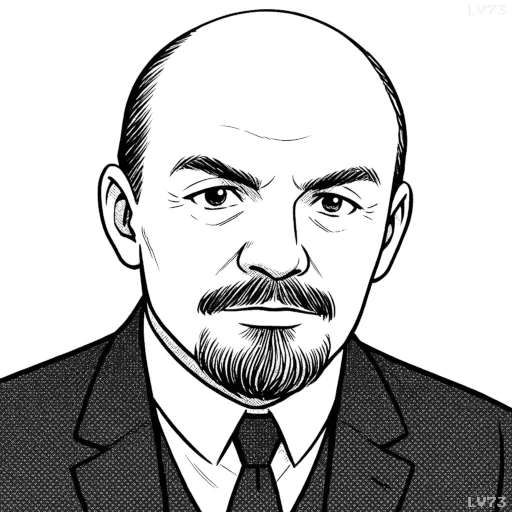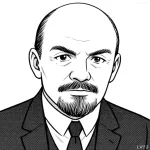“The goal of socialism is communism.”

- April 22, 1870 – January 21, 1924
- Born in the Russian Empire
- Revolutionary, political theorist, lawyer, state leader
table of contents
Quote
“The goal of socialism is communism.”
Explanation
This quote succinctly captures Lenin’s view that socialism is a transitional phase on the way to a fully realized communist society. According to Lenin, socialism is the period in which the working class takes control of the state, abolishes private property, and begins the process of organizing the economy for the collective good. However, socialism is not the final stage. The ultimate goal, communism, represents a classless, stateless society where all individuals have equal access to resources, and there is no need for government or coercive authority. Lenin saw socialism as a necessary stepping stone in the historical development toward this final goal.
Historically, Lenin’s statement reflects his adherence to Marxist theory, which posits that socialism is a phase of revolutionary transition that will eventually lead to the withering away of the state and the establishment of a classless society. He believed that after the seizure of power by the proletariat, the state would still be necessary to defend the revolution and organize the economy. Over time, as class distinctions faded and the means of production were fully collectivized, the state would become obsolete. Lenin’s concept of socialism as a precursor to communism was central to his thinking during the early years of the Soviet Union, where he aimed to implement policies that would lay the groundwork for communism while still having to confront external and internal challenges.
In modern terms, this quote remains important for understanding the theoretical distinction between socialism and communism in various political systems. For many, socialism is viewed as a system of welfare and public ownership, whereas communism represents the ultimate abolition of all class structures and government control. Lenin’s vision continues to shape discussions about the role of the state in socialist economies, and whether true communism can ever be achieved. Critics of Lenin’s theory argue that the practical implementation of socialism often leads to authoritarianism, which contradicts the idea of communism as a stateless society. Nonetheless, Lenin’s assertion serves as a reminder of the long-term vision of socialist movements that aim for a future beyond both capitalism and state-controlled socialism.
Would you like to share your impressions or related stories about this quote in the comments section?

